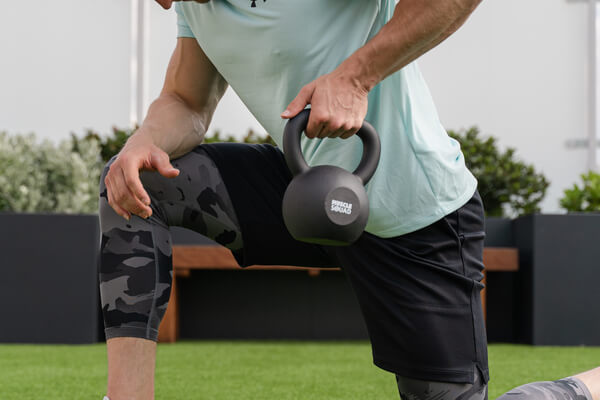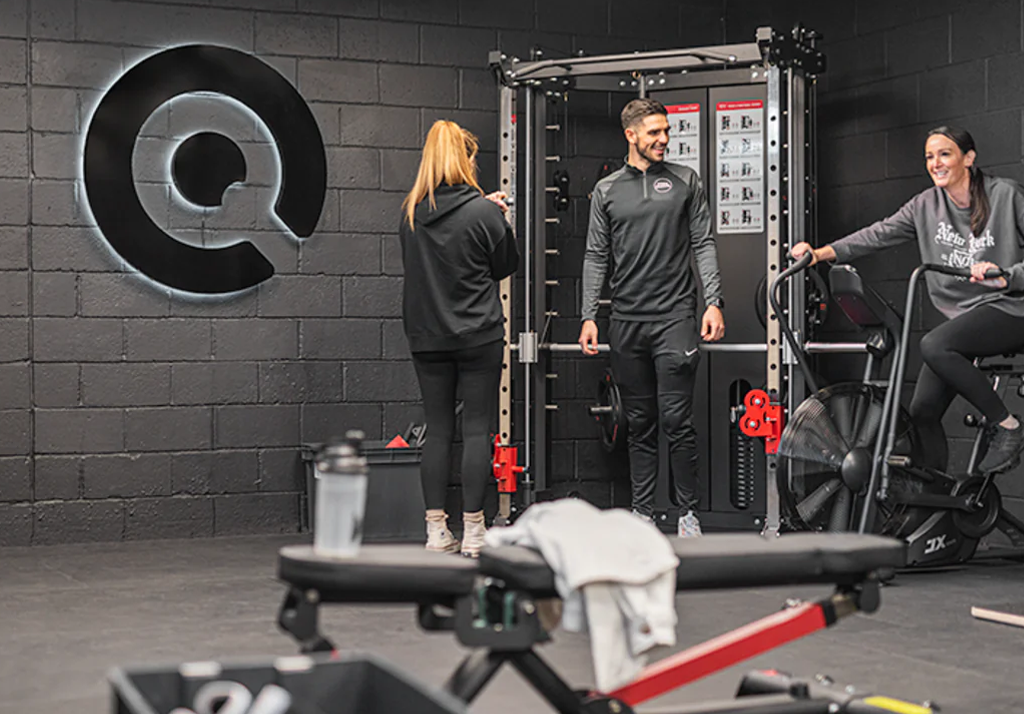Getting injured in the gym is not only inconvenient, but also dangerous. Luckily, most injuries can be prevented, and the risks can be minimised easily.
What is an Overuse Injury?
An overuse injury is caused by overtraining. It’s very easy to overtrain, especially with popular gym-narratives promoting you to ‘push yourself to your limit’ and to always ‘train hard’. Realistically, there is no concrete definition of what ‘training hard’ is. You can easily train too hard, by going to failure too often and/or going too heavy, which can cause injury.
Here are the most common ways people overtrain without realising.
Not Allowing for Muscle Recovery
Generally speaking, when you train a large muscle group, it needs at least a day or two to recover before you work it again. This is why you should find a workout split that you like and stick to it. Push/Pull/Legs and Upper/Lower are sure-fire ways to make sure your muscles are recovering in between sessions. A good workout split ensures no major muscle group is trained on back-to-back days.
Not giving your muscles enough time to recover between sessions can easily cause an overuse injury.
Maxing out too Often
Inexperienced trainees often think that for a set to be effective, they must take it to absolute failure, or RPE10. This means at the end of the set, you physically cannot do one more rep. While there are benefits to training to failure in moderation, doing it too often will cause an overuse injury.
If you’re a powerlifter, chances are you want to be testing your 1-rep-max on the big three lifts to gauge your strength. If you’re doing max tests more than once every 6-8 weeks, then you’re overdoing it and unnecessarily fatiguing yourself.
Not Deloading Often Enough
A deload is a term used to describe a week (or more) of training with lighter weights/lower intensity in order to allow your muscles and nervous system to recover. If you’ve never done a deload week, or not done one recently, chances are you’re overtraining and need to have a week of lower intensity training soon.
Impacts of Overtraining
Overtraining can cause muscle fatigue, and central nervous system (CNS) fatigue. Muscle fatigue leaves you vulnerable to overuse injuries while you train. Overuse injuries range in severity but they all hinder your training to at least some extent. CNS fatigue doesn’t put you at direct risk of injury, but it causes you to feel very run down, and sometimes even takes a toll on your mental health. It can make you feel depressed and extremely worn out. As well as its mental impacts, it can also cause a significant drop-off in strength.
The bottom line is, overtraining can seriously affect your performance in the gym and put your physical and mental wellbeing at risk.
To Prevent an Overuse Injury from Occurring, you should:
Take a Rest Day
No matter how you train, you should take a rest day at least once a week/every seven days. Depending on your workout split, more rest days may be needed. If you run an upper/lower split, you may need 2-3 rest days, and if you run a full-body split you could take up to 3-4 rest days per week.
Rest days allow your muscles and CNS to recover from the stress you place your body under by training frequently.
Don’t Train Major Muscle Groups too Often
The major muscle groups are your chest, shoulders, back, quads, and hamstrings. Ideally, you should not train any of these any more than three times per week. Twice a week is the ideal frequency for the major muscle groups, but if you have weak points that you want to work on, it won’t hurt to train them three times a week.
The smaller muscle groups like the biceps, triceps, calves, and core can be trained more than three times per week if desired. This is because they can recover easier.
Don’t Train to Failure or Max Test too Often
There’s lots of conflicting research on how often you should take your sets to failure. I personally follow the advice of Jeff Nippard and Eric Helms, whose research has shown that it is not necessary to train to failure at all. If you keep your sets at RPE7 or above, this is stimulating enough for muscle growth. If you want to take the occasional set to failure to make sure you’re training hard enough, two or three times per workout will do you no harm.
In terms of max testing, the only times you should max out are:
- Before starting a new training block. Knowing your 1rms is important, as some programs work off a percentage of your maxes.
- After finishing a training block, to see how much strength you’ve gained.
Take a Deload Week
Ever taken a week off work and come back feeling refreshed and ready to go? That’s essentially what a deload week will do for you and your training. Take a week (or more if you need) of training at RPE6 and below for every exercise. For your compound lifts, you should be using between 50-60% of the weight you’d use for your regular working sets.
In terms of frequency, you should take a deload week at minimum every ten weeks, but doing it more frequently will even further reduce the risk of injury. At most, take a deload every four weeks; any more frequently would be counterproductive and just slow your progress down.
Stretch and Warm Up before your Workouts
At the start of your workouts, you should find a mat and do some light stretching on the muscle groups you’re training in that session. Check out this piece on the importance of mobility training for more info.
Warming up is even more important than stretching at the start of a session. Whether it’s a dumbbell or barbell exercise you start with, gradually work up to your working weight with 2-3 warm up sets (or more if you’re stronger).
How to Train Safely and Avoid Injury
Do NOT overtrain. Make sure you’re NOT doing any of the following:
- Training the same muscle group on back-to-back days.
- Training to failure more than two or three times per session.
- Max testing when it’s not necessary.
To minimise the risk of overuse injuries, you should:
- Take a rest day at least once a week/every seven days.
- Train major muscle groups no more than three times per week.
- Train at RPE7 or above for all exercises, but don’t go to failure more than two or three times per session.
- Only max test at the start and/or end of your training blocks.
- Take a deload week every 4-10 weeks.
- Stretch and warm up before your workouts.
If you follow this simple advice, you’re doing yourself a favour and minimising the risk of getting injured from overtraining. This will ensure you progress at a consistent rate and get the most out of your training. Happy days.
Jamie Grover, Fitness Journalist from Bristol.

 Nov 11, 2021 - Jamie Grover
Nov 11, 2021 - Jamie Grover


Leave a comment: